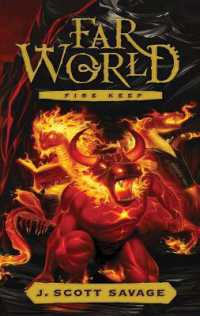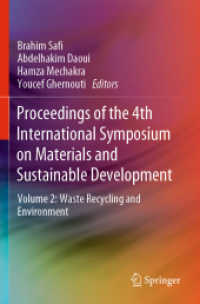基本説明
Places media at the heart of social theory by showcasting its influence in the major transformations of the modern world from the printing press to the computer.
Full Description
In Media and the Power of Knowledge, Fuller argues that from literacy to digitality, access and control of the available media have arguably done the most to shape the course of knowledge.
Fuller radically extends Marshall McLuhan's slogan, 'The medium is the message', by reading the distinction between 'hot' and 'cool' media through the lens of sociologist Max Weber's 'prophetic' and 'priestly' religious voices, the former demanding that receivers complete the message, the latter that they conform to it.
Readers will find a comparative appraisal of Socrates and Jesus as long-standing media personalities, as well as the fate of individual integrity, expert authority and the public sphere in the radically democratized landscape of the post-truth condition, in which truth-telling has been turned into a performing art that may adopt many forms. Does the tweet signal the return of the aphorism as a conveyor of insight about the world?
Historically and philosophically informed, while presenting provocative arguments that address today's concerns, this book considers the likely future developments of the media and its far-reaching implications for the human condition.
Contents
Introduction: A Look at the Course Ahead
1. Variations on Some Themes by McLuhan: The Medium Has Always Been the Message
2. Walter Lippmann and the Public Relations of Progressivism in the American Century
3. Democratizing the Intellect in the Post-Truth Condition
4. Media and the Power of Religious Knowledge
5. From Twitter Back to Aphorism, and the Fate of Knowledge
References
Index








